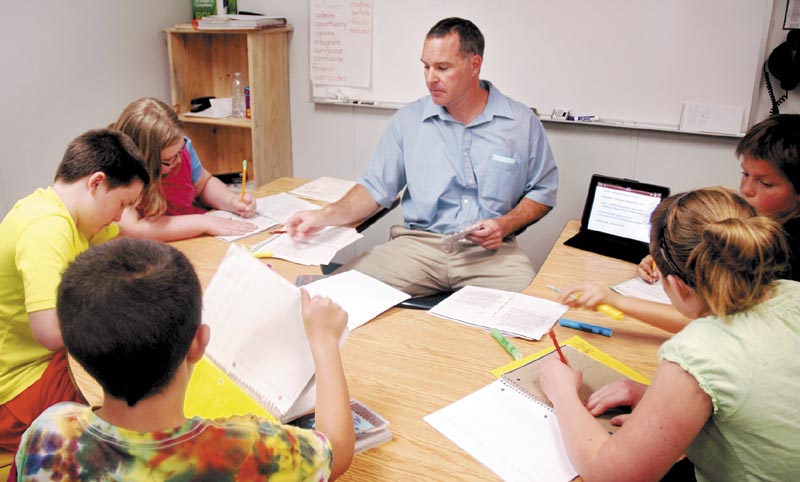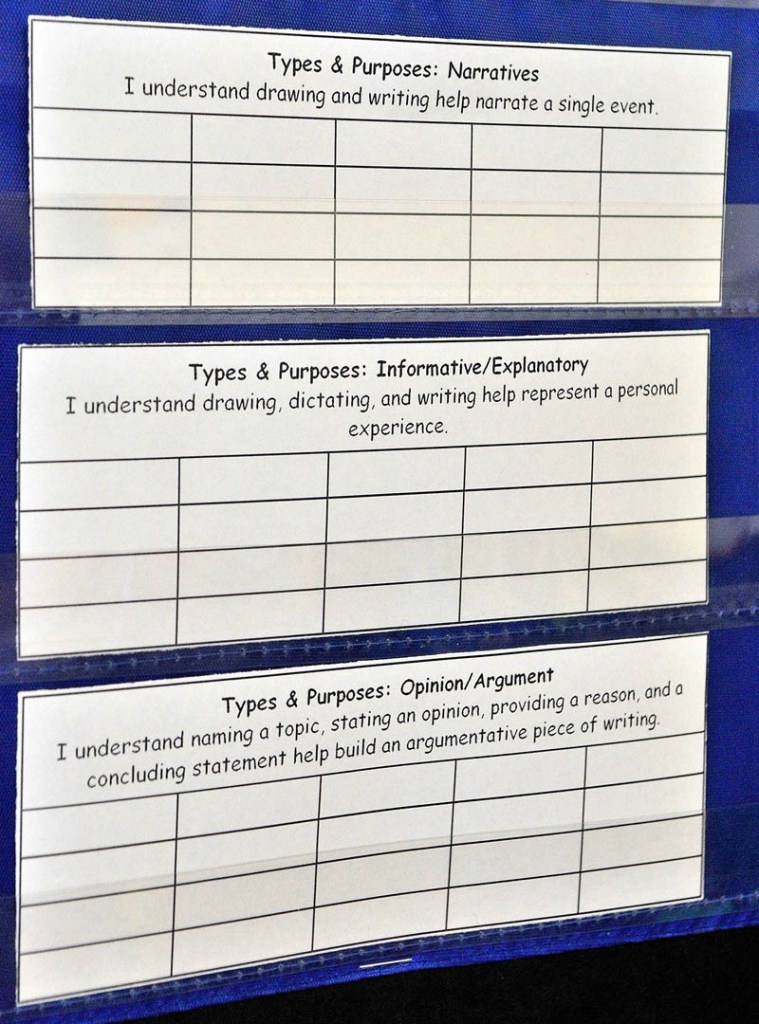Schools want to learn from one another.
That’s one of the biggest themes to emerge from the Department of Education’s follow-up efforts on the release of a controversial A-F grading system for Maine public schools.
School leaders have told department staff that they want more information about best practices and how demographically similar schools are improving student achievement.
The department has already highlighted some schools, such as Canaan and Bloomfield elementary schools in Regional School Unit 54, which has used a school improvement grant to put an academic coach in every elementary school in the district to help teachers.
But there are still other schools that bucked the trend of low-income schools receiving low grades, or that didn’t receive good grades but have bright spots in their data. These schools could receive attention from other districts or from state officials looking for programs, practices or curriculum that can be duplicated elsewhere.
A section of the Department of Education website called the Center for Best Practice includes case studies, videos and other resources from several districts implementing an educational model that state officials are touting, called proficiency-based education.
The department’s regional and content-area specialists are looking for promising practices so that schools seeking help with something specific can be pointed toward those examples.
Leaders of schools that scored well on the report card have theories about the factors in their success, but it’s difficult to know for sure.
“We’ve all been thinking here about what exactly it was that teachers did and parents and kids did that helped us get that,” said Mary Helen Williams, principal of Dresden Elementary, an A school. “If people knew the answer to it, we’d all be doing it at the same time.”
Dresden Elementary’s eligibility rate for free and reduced lunch – a commonly used way to measure poverty in schools – was 48.9 percent in 2011-12, about 5 percentage points higher than the state’s overall rate. Because standardized test scores are linked with socioeconomic status, relatively few schools with significant poverty received top grades.
Williams said the proficiency-based model of education being adopted in Dresden’s district, Regional School Unit 2, ensures that everyone stays on top of students’ progress and individual weaknesses.
“The beauty of the measurement topics, I think, is that teachers and students and parents know exactly the information that we’re all responsible for and the basic timeline for getting it done,” Williams said. “A kid coming into fourth grade is going to know what he or she has to cover. Parents can expect kids to get proficient on most if not all of those learning targets. Teachers like that, for the most part, and I think kids do, too.”
In proficiency-based education, the curriculum is broken down into topics and skills, and students must demonstrate proficiency on each one before proceeding to the next. Students can move through the curriculum at different paces and may not be grouped by age or grade level.
Williams credits the hard work of Dresden’s teachers and the involvement of parents, but like the district-wide proficiency-based model, she said those are also present at other RSU 2 schools that received lower grades. That includes Marcia Buker Elementary in Richmond, where Williams is also principal.
“Marcia Buker has also got terrific community involvement,” she said. “We’ve got packed houses for art shows and concerts. We had a C, we didn’t have an A.”
Williams said the fourth- and fifth-grade teachers at Dresden have decided to teach their strengths, with one teaching English and social studies to students in both grades, and the other teaching science and math.
Dresden also has started putting more emphasis on skills that will serve students throughout their education and careers, such as time management, goal setting and communication.
Beyond those possible explanations, Williams said Dresden’s size could have contributed to its high grade. With only 97 students last year in pre-kindergarten through fifth grade, a small number of students can have a big impact.
RSU 2 staff members are continually parsing data from different sources and looking for ways that the district’s 10 schools can learn from one another, Williams said.
“We have to see what happens next,” she said. “We said to ourselves, ‘Great work, we’re proud of ourselves, we just have to keep at it.’“
Moscow Elementary received a C, with low proficiency rates in both math and reading, but the school earned 100 out of 100 possible points for growth shown by individual students in math.
Juliana Richard, principal of Bingham-based School Administrative District 13, said school leaders knew that math had been a problem. They were dissatisfied with an electronic program that they were using, so they switched to printed textbooks last year.
The school staff worked with a consultant from the Maine Mathematics and Science Alliance and a coach paid with federal money through the No Child Left Behind accountability process. Teachers were involved in every decision, Richard said.
“More than anything, we just put our heads together and collaborated,” she said.
The teachers looked closely at data from student assessments at the start of last school year and worked intensively to fill gaps and refresh students’ learning in the six weeks before the New England Common Assessment Program tests in October.
Like Williams, Richard said that size is a possible factor and could cause volatility in the letter grades from year to year.
As an example, she cited the district’s high school, Upper Kennebec Valley Senior High School, which received an F because of low proficiency rates on the Maine High School Assessment. On this year’s test, Richard said, the number of students scoring proficient doubled, though there was no radical difference in what the school was doing.
Richard said the students, staff and community were disheartened by the F for the high school, and she believes the next round of report cards will reflect more positively on the district’s schools.
“Our faculty are strong individuals, and they’re working very hard to support our students,” she said. “We’re looking forward and getting ready to shift into the next year here.”
Susan McMillan can be contacted at 621-5645 or at:
smcmillan@mainetoday.com
Send questions/comments to the editors.



